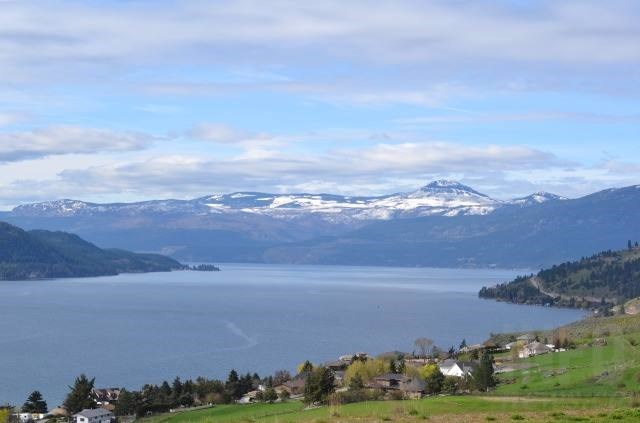
Looking out over Okanagan Lake from Bella Vista Road in Vernon.
(CHARLOTTE HELSTON / iNFOnews.ca)
February 23, 2019 - 11:00 AM
Okanagan Lake is more than a pretty spot for swimmers, boaters, and the mysterious Ogopogo. It's also a popular source of irrigation for planters and farmers. A recent university study reveals the lake water might be a key factor in releasing CO2 emissions during soil irrigation.
On Feb. 21, UBC Okanagan released the findings of its latest study on the chemical forms of CO2 that leave soil during irrigation. They found that soil irrigated with water from Okanagan Lake released CO2 from bicarbonates in the liquid. Sounds impressive, but what does it actually mean?
In the press release on the study, Kirsten Hannam, an agroecologist with Agriculture and Agri-Food Canada, said some plants which remove CO2 from the atmosphere during photosynthesis can convert the chemical into soil organic matter that stores the chemical for hundreds of years. She said such organic matter could help soil grow more crops and combat climate change by containing CO2.
The study measured the air from dynamic soil respiration chambers in an orchard, irrigating them with different water supplies. The study found that Okanagan Lake water released CO2 from bicarbonates (natural salts) during irrigation of soil.
"It’s a process we had not considered until we noticed some unusual results when we traced the source of the CO2," said Andrew Midwood, UBC Okanagan soil scientist, in the release.
Hannam said the irrigation process is natural and noted the study's results have to be considered in a broader context. She said while irrigation using Okanagan Lake water could be releasing more CO2, plant growth caused by mass irrigation can remove those emissions through photosynthesis.
"It’s a balance and to understand the balance, you need to know all the component parts," she said.
To contact a reporter for this story, email Sean Mott or call (250) 864-7494 or email the editor. You can also submit photos, videos or news tips to the newsroom and be entered to win a monthly prize draw.
We welcome your comments and opinions on our stories but play nice. We won't censor or delete comments unless they contain off-topic statements or links, unnecessary vulgarity, false facts, spam or obviously fake profiles. If you have any concerns about what you see in comments, email the editor in the link above.
News from © iNFOnews, 2019